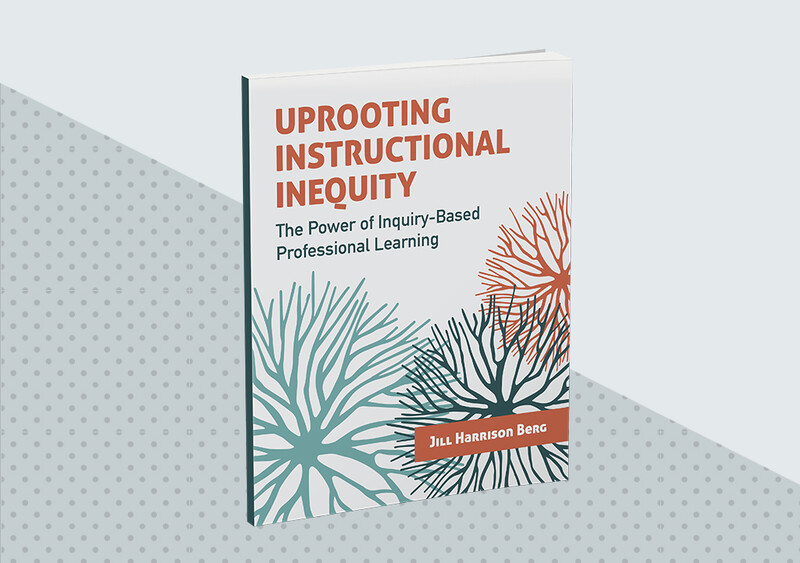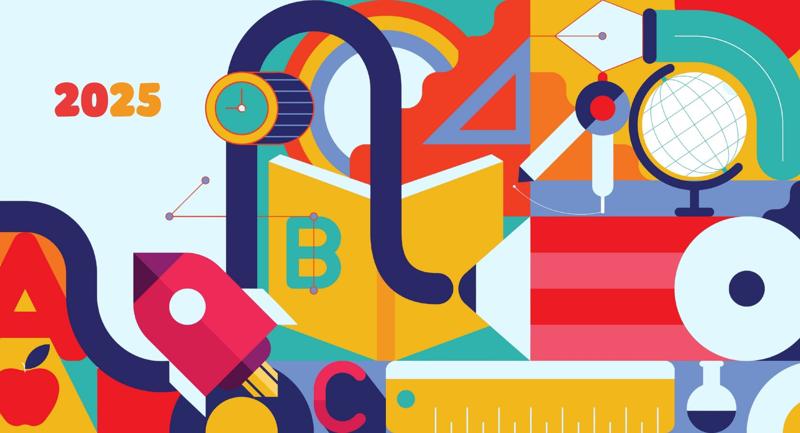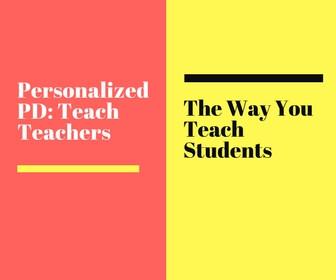The recent trend of tapping teachers as leaders of professional learning is truly exciting. Students need and deserve to benefit from the expertise, experiences, and perspectives of more than just the few classroom teachers assigned to them. As professional learning leaders, educators can have a positive influence on the quality of teaching far beyond their own classrooms and accelerate a school’s capacity to meet the needs of each and every student.
But if I’m being honest, I’m also worried. I’ve seen an overabundance of teacher-led “best practice” sessions, “make and take” workshops, and other forms of “show and tell.” We know a lot about what makes professional learning effective, and these approaches aren’t it.
Current practices in today’s schools largely produce inequitable results, so arranging swap meets where teachers merely exchange ideas won’t get us to where we need to be. Professional learning must be transformative. It must change how we make decisions at both the classroom and school level so that we better meet students' needs, and, as a result, increase instructional equity.
A Position with Potential
Teachers are well-positioned to be influential leaders of professional learning in several important ways. Research tells us that effective professional development is content-focused and provides models of strong professional practice. Unlike many administrators and external PD providers, teachers have extensive firsthand experience with unpacking content, making meaningful connections to other content areas, and analyzing how students respond. From this perspective, their role as professional learning leader has unmatched authenticity.
Effective professional learning also incorporates active learning, feedback, and reflection. Teachers’ rich knowledge of their school’s students and families gives them an advantage when engaging their colleagues in thoughtful action and reflection that explores what it means to teach these students, at this time, in this setting.
In addition, expert professional learning supports collaboration and coaching over time. With the parallel work teachers do in their classrooms, their relationships can be less hierarchical than those they have with administrators or others who coach from beyond the classroom. Under the right conditions, teachers can feel a sense of solidarity that motivates them to grow together and feel safer taking risks and providing feedback for improvement, beyond the confines of formal professional learning routines.
How, then, can teachers capitalize upon their positional superpowers to become the professional learning leaders our schools need? What do they need to do to move beyond the one-off workshop and instead facilitate transformational professional learning for the participants in their PD sessions? It’s all in the planning.
Teachers’ rich knowledge of their students and families gives them an advantage when engaging colleagues in thoughtful action and reflection.
Jill Harrison Berg
PD with a Plan
As I explain in my new book, Uprooting Instructional Inequity: The Power of Inquiry-Based Professional Learning (ASCD, 2022), teachers can power-up professional learning when they plan with attention to four design phases.
1. Take Account of the Core Components
Powerful professional learning leaders take time to analyze each component of the instructional core—the content, the participants, and their own role as facilitators—in advance of their professional learning experience. What is known about each? What prior knowledge might participants hold about each? And how might they be wrong?
When planning starts with critical attention to these core components, facilitators are better prepared to meet participants where they are, to challenge assumptions they may hold, and to communicate about role expectations in a way that encourages participants to assume agency of their own learning.
2. Establish Connections Needed for a Productive Learning Environment
Powerful professional learning leaders establish a foundation of strong connections among the three components of the instructional core: How will you help participants see the relevance of the content? How will you build participants’ confidence that they will be supported to meet the rigor of the content? How will you establish relationships with and among the participants?
Answering these questions will foster a learning environment that inspires participants to share commitment, mutual accountability, and psychological safety to get beneath surface-level change and confront current inequities in their classrooms.
3. Construct an Inquiry Cycle
Powerful professional learning leaders make the interrogation of professional practice central to the learning experience. Taking in new knowledge or perspectives isn’t enough; participants must be challenged to apply them to current teaching or past practice and to reflect upon implications for the future. This process of assessing a problem of practice, documenting or reflecting on past attempts to address that problem, analyzing the results, and adjusting practice going forward is an inquiry cycle.
By using an inquiry cycle as the underlying frame of professional learning, facilitators allow participants to not only address the problem at hand, but also to change how they think about related decision-making going forward. The laser focus on impact opens educators up to thinking critically about existing practices and empowers them to devise new approaches for meeting their students’ specific needs. To address inequity at its root, we need to shift the focus of PD from learning a practice to improving decision-making about how we practice.
4. Prepare for Continuous Learning
Powerful professional learning leaders aim for change on several levels. If they can influence not just participants’ professional practice, but participants’ sense of agency about changing their practice, they can cultivate habits that lead to a continuous learning culture. And if they can support participants to document and share insights about factors that aided or limited their efforts to increase instructional equity in their classrooms, they can mine insights from across participants’ lines of inquiry to shine a light on ways the system may be inequitable by design.
Leaders should collect participants’ perceptions of their experience and evidence of impact on their mindsets, practices, and systems throughout the inquiry cycle, not as an afterthought at the end. Such evidence can be used as formative data to inform mid-course adjustments to the professional learning plan. And where school and district leaders are willing to listen, it can be used as summative data to fuel organizational learning about systemic adjustments needed to support the instructional changes.
Teachers as Leaders of Learning
Many principals are accustomed to seeing themselves as the instructional leader of their buildings. To be sure, they are responsible for ensuring there is support and accountability for a school’s instructional program—and its differential impact across different student groups. Effective principals, however, recognize that many other members of the school community are also poised to be a positive influence on the quality of teaching, each from their own unique vantage point. Teachers, in particular, can be powerful assets for instructional improvement and should be supported as leaders of professional learning.
Empowered with planning guidance, teachers can succeed in developing a learning community committed to authentic conversations about instructional inequity. Honest dialogue, shared ownership of challenges, critical friendship, and willingness to examine assumptions can lead a learning community to make critical changes in the quality of their professional practice, while also revealing ways a school’s systems or policies may need to be reformed to align with these changes. When teachers are willing to lead and principals are willing to lend support, schools can learn how to uproot instructional inequity and meet the needs of each and every student.
Uprooting Instructional Inequity
In Jill Harrison Berg's new book, learn how to use collaborative inquiry as a means for identifying, interrogating, and addressing instructional inequity.









